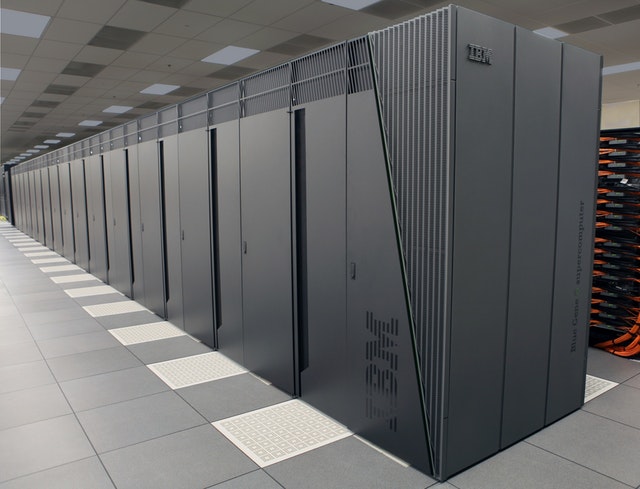Author: Aileen Scott
Harvard Business Review has declared data science as the ‘sexiest profession of the 21st century’, and rightfully so. Keeping in mind, the amount of data being generated each day, the future scope of data science is bright, in fact, very bright. Students of technology, business, economics, mathematics, computer science, and the related subject domains, are all eligible to prepare for a data analyst role.
In the U.S., it is expected that there will exist 2.7 million openings for data science roles in 2020.
However, breaking into the said industry requires you to be extensively skilled, that, most are not. And hence, the need to enroll for big data analytics certifications. They allow you to attain the requisite skills quickly, with much lower capital investment and time, compared to the overwhelmingly high costs needed to be invested into attaining college degrees.
Certifications Help You Demand Bigger Paychecks
Source: Payscale.com
It has been proven time and again that those holding a certification in data analytics are preferred by recruiters for the entry-level jobs. Besides, you are paid better being a certified professional, whether in the early stages or in the final leg of your career.
Pay by Experience level for Junior Data Analysts
Source: Payscale.com
Further, one more reason to make a career in data science is the fat paychecks, alongside, the receival of bonuses, and profit-sharing capital. The average annual compensation for a junior data analyst in the U.S. is $48,832, excluding the other monetary perks, i.e. bonus and profit-sharing.
As per Payscale, a mid-career junior data analyst earns a median salary of $64,000 per annum, while having a minimum of five-year experience under his belt. Talking about data scientists, an early-career professional earns a median salary of $87,267 annually, with just 1-4 yrs of work experience, while a mid-career level data scientist would earn a whopping $98,447 per annum, having 5-9 yrs of total experience.
Here, it’s noteworthy, that certified data science professionals can earn much more than mentioned above, given that they possess a few extra industry-relevant skills that lead to extracting more value for businesses.
Mandatory Skills To Develop Yourself Into an Adept Data Analyst
- Advanced Excel: To execute data-structuring, you need to be familiar with working on excel. The said software offers a unique suite of diverse functionality, which allows for hassle-free data management.
- Elementary skills in web development.
- Elementary skills in SQL.
- Capability to extract valuable insights out of processed data.
- Familiarity with data mapping.
Data analytics leverages fundamental concepts of subjects such as applied mathematics and statistics, while it eventually helps produce inputs to predictive modeling and AI development. And hence, as a prospective data analyst, you need to make yourself proficient in the said subject disciplines. The best data analytics certifications, available online, does prepare you for the talked about skills in a quick time.
Popular Skills for Junior Data Analysts
Source: Payscale.com
Coding Skills Needed to Succeed as a Big Data Analyst
R & Python are the two most-used programming languages for analysts, around the world. R, as a coding language, supports graphics and statistical computing, Python, on the other hand, serves the purpose when it comes to writing code for large ML & AI projects.
Applied Statistics
Coding will go meaningless if the data interpreted is not correct. Whenever we talk data, statistics automatically comes into the picture, as the two are interrelated. Among the basic statistical skills, comes the knowledge of median, mean, SD, mode, percentiles, ANOVA, probability, histograms, distributing and chaining the data in specific groups, causation, and correlations.
Applied Mathematics
Data analysis is closely associated with numbers. And, if one is good at dealing with numbers, data science will prove to be an apt career for him. Under applied mathematics, comes the knowledge of relational algebra, series, framing data, and CAP theorem.
Data Wrangling
Data wrangling deals with transforming raw data into a structured and logical form, which leads to it being workable. To attain the said capability, you will be required to work with both, NoSQL-based datasets & SQL datasets that serve as central data hubs to any data science project. A few examples for the same would be Oracle, Spark, MySQL, Netezza, MongoDB, Hadoop, and PostgreSQL.
Data Visualization
A data analyst’s job is not restricted to just data interpretation & forwarding the related reports to the team lead. They are also responsible for communicating actionable insights that are being extracted in the due course of them performing their duties, to the stakeholders in the project. Familiarity with working on visual encoding tools is needed to excel at these sets of tasks. A few of such tools comprise seaborne, matplotlib, asggplot, and d3.js.
Day-to-Day Business Duties Executed by Data Analysts
- Performing market research.
- Interpreting figures, market forecasts, and numbers.
- Identifying patterns, trends, & algorithms within the huge datasets.
- Collecting numerical data.
- Influencing business-decisions with data-backed logic.
Concluding Thoughts
Certifications in data science will certainly help bag you, your first job, or to receive a work promotion, but love for numbers, and a keen eye for detecting patterns and trends by looking at unstructured data, is a must. Such skills cannot be attained overnight, but, with absolute dedication, hard work, sincerity, and perseverance, you can acquire them in a certain timeframe. Nothing is impossible. All, that is needed, is the intent to learn. Online certifications are among the best available options in the current times, to acquire these valuable skills, while not spending a dime, or investing much time.
